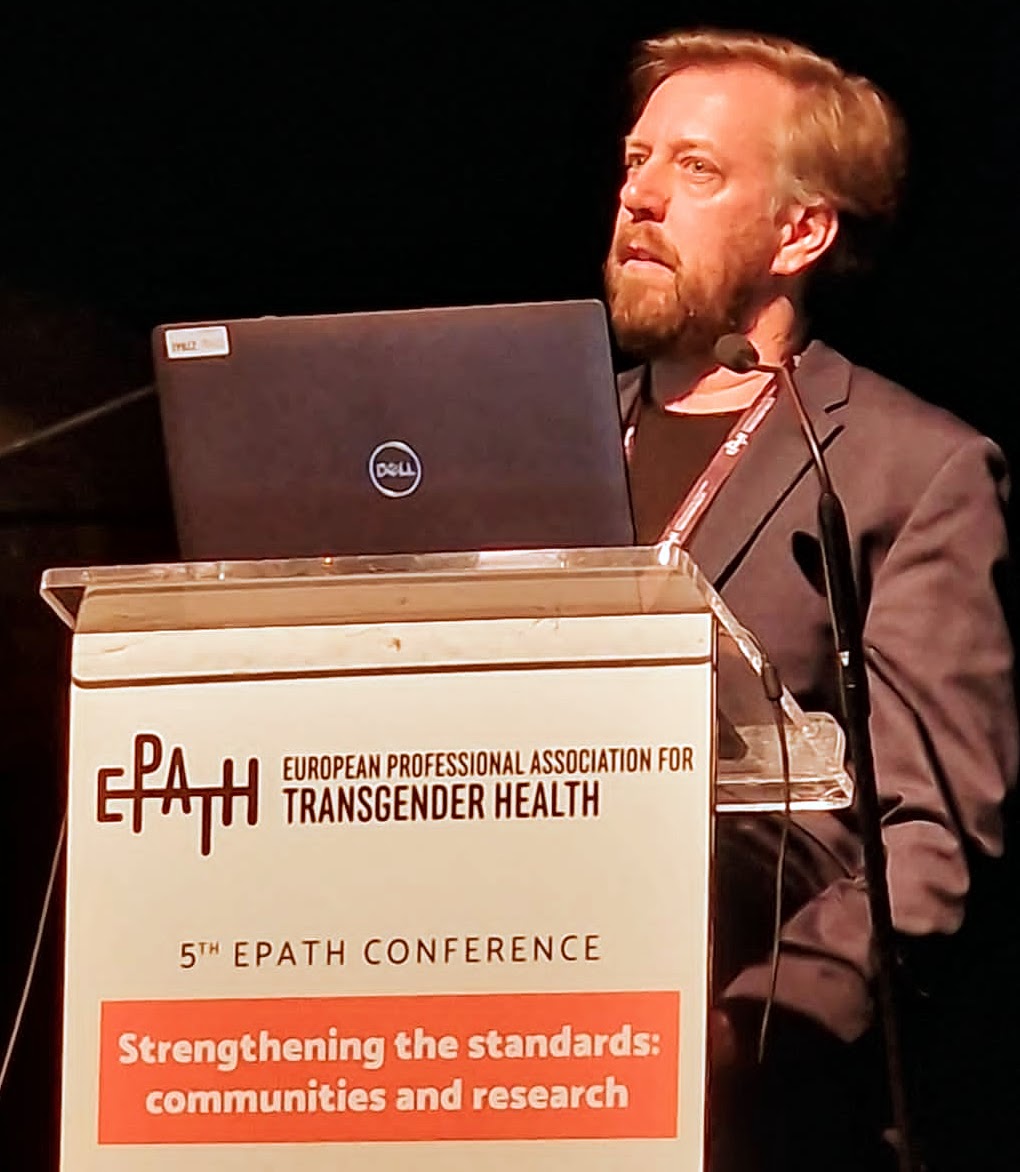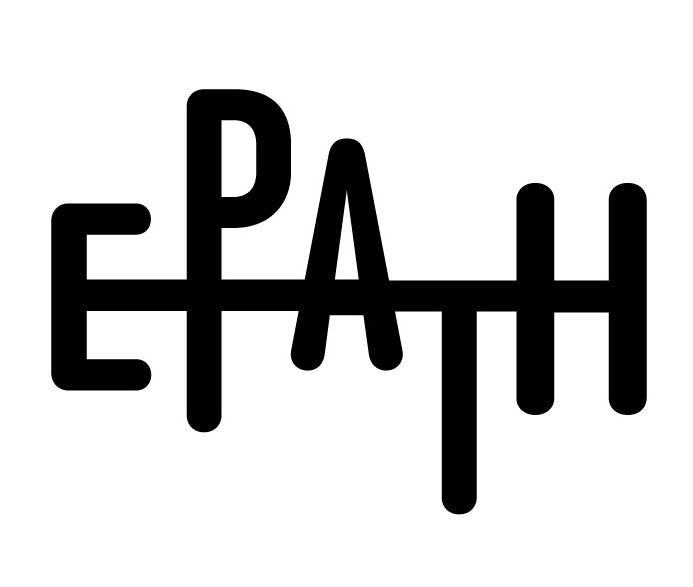
Dear colleagues,
It is my great pleasure as EPATH’s president to welcome you to the 5th EPATH meeting, on behalf of the EPATH Board and the Scientific Committee. It has been 2 years since we’ve met digitally or in person, in Stockholm Sweden at our previous EPATH conference. At that time it was unsure how conferences would unfold, but with over 500 attendees at this edition, it is clear that our need to personally meet up, present and discuss our clinical practices and research, is as high as before the pandemic.
The title of this edition is “Strengthening the standards: communities and research” and hints at the need to devote our scientific attention towards the quality of our work, to the need for evidence, for standards in care, but also to the need to strengthen our communities: our communities as researchers, as clinicians, and also our trans communities. Today, we all are, in some way or another experiencing pressure or straightforward attacks, whether it be institutional, political, societal or personal, from many different angles. We witness a rise of anti-gender and anti-trans voices, legislation, policies and movements. In the light of anti-woke tendencies, gender has become the new entry point for far right parties and organisations to use as a target to gain electoral votes. We are not the first target group, look at the anti-migration debate, the anti -vaccination debate, the anti you name it debate, and we will definitely not to be the last. To fully understand what ‘s going on, we need not just health care providers to take part in our debates, but we also need you sociologists, anthropologists, ethicists, political scholars, lawyers… to help us see ‘the bigger picture’. Knowledge produced from these disciplines helps us understand and contextualize what we witness every day. As a social scientist I am very happy to see many of you to join us in these scientific debates and as such improve interdisciplinary knowledge building in trans health.
Now, as researchers and clinicians, critical reflection on what we do and how we do what we do, is a valuable tool for improvement of our practices and standards. True scientific development needs debate and constructive criticism to develop. But the difference between freedom of speech and scientific debate should not to be taken lightly. May I quote the words of sociologists Sarah Bracke who recently wrote:
Start of quote
An individual may publicly claim that the earth is flat, that vaccines cause autism, that climate change does not exist, or that gender is binary, without being oppressed or persecuted. With caveats: like any other right, this right of freedom of speech is not absolute. Moreover, if it constitute a demonstrable threat to another individual, and incite hate speech or violence, then intervention must be taken. In addition, the right to free speech does not imply an obligation for others to listen. This insight is sometimes in danger of being lost: you can say what you want about the climate or vaccines, but freedom of expression usually does not mean that others are obliged to give you a platform. So you are not censored or ‘cancelled’ if you don’t get that platform. (…) All this differs in principle from academic freedom. There, statements such as ‘the earth is round’ and ‘the earth is flat’ do not enjoy the same protection. One is supported by a plethora of scientific evidence, the other is not. If you are convinced that the Earth is flat and publicly proclaim it, then there is no place for you in the scientific field at this point in history – in scientific publications or in the classroom.
End of quote
Let’s always keep this difference between scientific debate and freedom of speech clear. I hope to see this also in the future evolutions of EPATH: that we can stand strong together, interdisciplinary and keep the ability to truly listen to, engage with, and learn from each other in the sense of scientific debate. That we strengthen our communities as well as our standards. That we respect each other when our words and actions are built on scientific debate. That we keep this open mind even when the outside world has become hostile.
If you allow me, to go back in time…. The idea was born in a cab leaving Atlanta from a WPATH conference in 2011. The first meeting was 2013 in Gent with the birth parents. The launch was at the WPATH conference in Bangkok in 2014. Finally, EPATH was officially and legally founded in 2018 and aims at: to gather European, international and local experts, to addresses key issues in our field, and to be an exciting forum for discussion, learning and networking. We do this in the most transparent and public way we can. On August 18th until October 10th, the EPATH Board opened their call for Scientific Committee members. 35 people applied, 4 were not elected because they did not meet up to our criteria (2 lived not in Europe, 1 had no phd level or equivalent of 3 scientific papers, and 1 had no time to review in the time period communicated for review). Our call for abstracts was launched on September 29 2022, and ended on November 14th. All abstract submitted went through a transparent double blind peer review process that avoided nepotism by our Scientific Committee. 98% of abstracts were accepted, based on the quality of their submission.
Some of you might wonder why I delve into these details. The reason why I do that is to give you factual information about our scientific processes and standards and to respond to unfounded attacks from some angles that EPATH would like to shut down the debate and think the science is settled. If we would think that, we definitely would act otherwise, and we definitely would stop organising conferences. And no, it’s true, we’re not the best communication managers, and we do not lower our standards to sloganesque quotes on twitter or Instagram. We respect everyone’s freedom of speech, but we choose not to listen to it. Our answer is and will always be: nuance, dialectic, scientific debate, and not slogans that fit on a bumper sticker.
As one of the founding board members, and now in my last days as your president, I wish to remind all of our EPATH members and conference attendees, that the aims of EPATH have always been, and will always be, to support scientific and professional interaction among all fields in transgender health. We have for years now, in previous editions of our conferences, and in line with good governance arrangements, our Code of conduct. All attendees, speakers, sponsors and volunteers at the conference, are required to agree with our Code of Conduct. We expect cooperation from all participants to help ensure a safe environment for everybody.
And may I say that the high amount of abstracts submitted gives us hope for the future of our research field. This edition has the largest scientific programme we ever had. In total, the EPATH programme features a total of 240 presentations. It fills our hearts with joy to see the scientific community so eager to discuss their work with colleagues. We thank you from the bottom of our heart to not be silenced, to keep the debate going, to keep doing your work, be it sometimes in very difficult circumstances.
Now let me just point out our recurrent plenary sessions. The first is the plenary session ‘Transgender Health Care in Europe’ that presents you the health care situation in the Eastern Europe and Central Asia (EECA) region, Iceland, the UK, and the Czech Republic. This recurrent part of the EPATH conference allows countries from different parts of Europe to share clinical services and practices for transgender care. The second recurrent plenary session, ‘The Year in Review’, will give you a synoptic review of notable recent literature in various sub-specialities of transgender health: mental health adults, mental health children & adolescents, endocrinology, surgery, social and political sciences, reproductive health, voice and communication, and law, politics, and ethics. Approaching transgender health, as you can see, needs all of these disciplines (and more) as ‘health’ is referring to mental, physical and social health.
When the EPATH membership voted for Killarney during the host elections in Sweden in 2021, little did we know that Ireland would rank at the bottom of the trans health map published in November 2022 by Transgender Europe. We hope that the scientific programme that we brought to Ireland will strengthen Irish healthcare providers and trans communities in their much needed work.
Hopefully before or after the conference, you have time to discover county Kerry and fall in love with its beauty, as we did. We are pleased to see that the distance and travel challenges did not stop you to attend this conference. Your time and effort is highly appreciated. To also strengthen our bonds, as well as to support our communities who are under pressure, we decided to organise a fun run. We hope that many of you will take part and discover the beautiful park around Muckross House and Gardens. All the profit will go to Trans Kerry, the local trans organisation.
The EPATH board hopes you will enjoy the conference and consider EPATH 2023 as a valuable contribution to your professional development. We thank our sponsors for their financial support, TENI, our Irish hosts of this Conference, for their collaboration, and all the volunteers who help make this conference a reality. And as my last day as your president: let me personally thank you for your encouragements, your support and your warmth. We started EPATH with the ambition to bring together researchers and clinicians in Europe, and when I look in this room, I am confident that EPATH is needed more than ever. I invite those of you who are not a member yet, to consider to join the EPATH family and to be involved in the fulfilment of our aims, which are
- To promote mental, physical and social health of transgender people in Europe
- To increase the quality of life among transgender people in Europe
- To ensure transgender people’s rights for healthy development and well-being
Thank you.
Joz Motmans, now Past-president of EPATH
